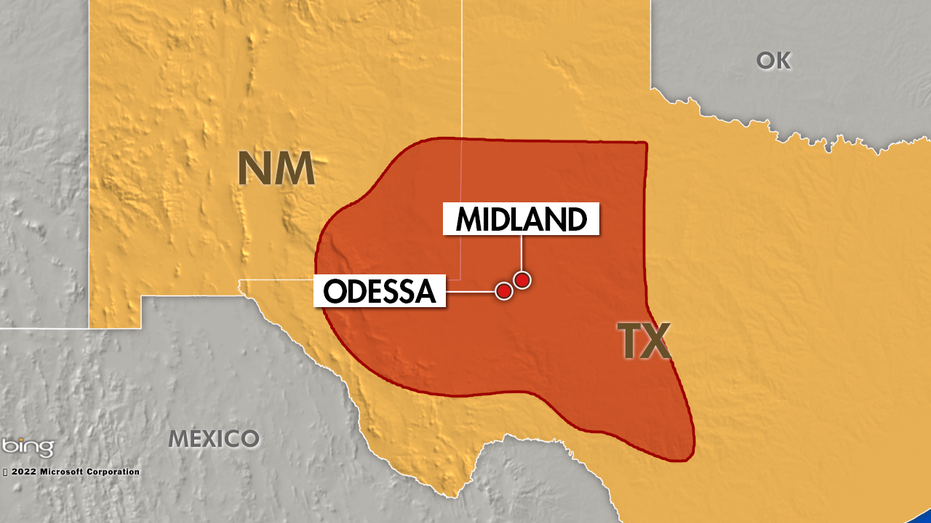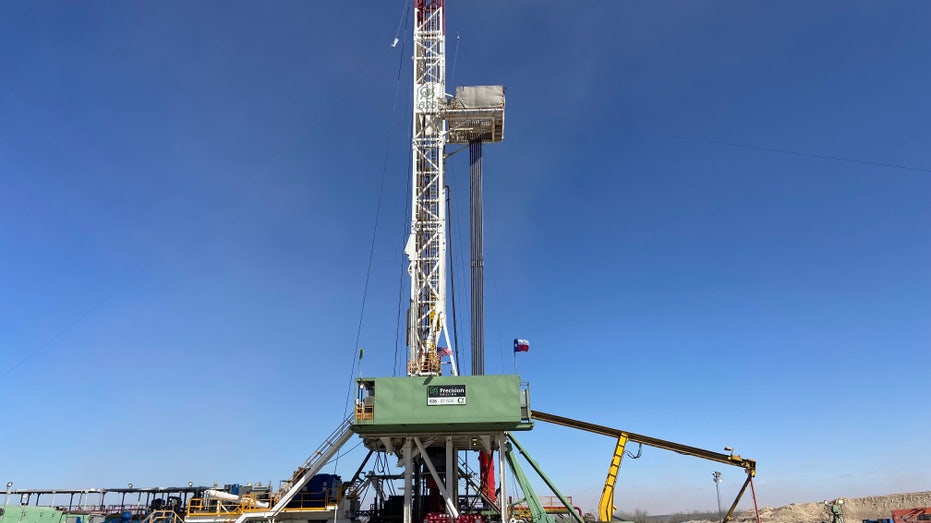West Texas oil producers pumping through new challenges during Russia's Ukraine war
While the industry is used to booms and busts, the pandemic created a unique situation
Oil production industry hits roadblocks amid inflation, pandemic problems
Although the oil industry is producing at record production levels, the profit isn't there for producers.
MIDLAND, Texas – Will it be Midland or Moscow?
That's what people in the Texas oil industry are asking after Russia invaded Ukraine.
Now, industry leaders are putting more emphasis on domestic oil production rather than relying on foreign countries to heat our homes and fill up our gas tanks.
The Permian Basin in west Texas is the epicenter of domestic oil production – a region where 50% of all the United States' crude oil is produced.
"That is the lifeblood of our economy," said Patrick Cohorn, an operations manager with Henry Resources.

Henry Resources is an independent oil and gas producer in the Permian Basin.
Their drilling is a 24/7, year-round operation, producing around 10,000 barrels of crude oil per day at just one of their sites — 22,000 among all of them. They need at least 100 people to run a single rig.
Yet 50,000 employees in the region were laid off during the pandemic, and about one million nationally.
Henry Resources says they've been lucky to keep their staff, but other companies had to shut down some of their drilling rigs in 2020.
Only two-thirds of the workforce has returned.
"The oil and gas business is very cyclical, and the pendulum tends to swing very hard from one side to the other," Cohorn said.
Oil producers' ideal situation would be selling crude oil at high prices with low operating costs.
Right now, crude oil prices are high, but operating costs are also high.
OPEC REFUSES TO INCREASE OIL OUTPUT AS U.S. ANNOUNCES MASSIVE RELEASE OF CRUDE RESERVES
They're also dealing with supply chain issues and inflation.
"Inflation affects our industry as much as it does everyone else whether it's, you know, milk and eggs for… it's also for the industry. We're dealing with challenges in acquiring materials, raw materials," said Michael Lozano with Permian Basin Petroleum Association.
Even with these challenges, the Permian Basin has been operating at near-historic levels of production, about 5 million barrels a day.
Drilling permits are also increasing year to year: 1,600 active drilling permits from January to February 2021 compared to 1,800 active drilling permits in the same time frame.
Yet the profit just isn’t there for producers.
"The idea of having oil in excess of $100 a barrel sounds good at first blush, but all of the associated activity on the manufacturing side of things or transport side of things, fuel charges all have risen as well," said Brandon Phillips, a Henry Resources drilling and production engineer.

Drilling rigs like this one require at least 100 people to operate. (Ashley Soriano/Fox Business)
Kirk Edwards is the president and CEO of Latigo Petroleum.
He had plans of drilling up to 14 new wells this year, but he decided to pause the process because the cost for him has doubled.
"We're trying to see the supply chain where those things are, how we can't procure them at okay cost, not exorbitant pricing that we're seeing right now," Edwards said. "So we're just kind of sitting back and seeing if things settle down."
The Midland-Odessa area and the greater Permian Basin have relied heavily on oil production to keep the local economy strong.
GET FOX BUSINESS ON THE GO BY CLICKING HERE
"Probably 50 to 70% of the people living in our community are affected by oil and gas," Edwards said. "It helps pay for our schools in Texas. It helps our tax base locally to give us very nice theaters you know, very nice quality of life from having the oil and gas here locally."
U.S. oil producers and some Republican lawmakers have been pushing for an increase in domestic oil production, especially after Russia invaded Ukraine.
"Our options really are Midland or Moscow when it comes to producing energy for ourselves and for our allies," Lozano said.
Companies relocate to the Sun Belt area
From Arizona, to Texas, to North Carolina, the Sun Belt is becoming a hot spot for business relocation. Companies across America are cutting costs by moving down South. And, that’s fueling a housing boom in Texas.
CRUDE PRICES FALL ON REPORTS BIDEN PLANS TO TAP OIL RESERVE
Executives from some of the bigger oil companies like Chevron and BP are set to testify before Congress on record-high gas prices later this month.
Some of the independent oil producers who spoke with FOX Business said they wanted people to know they're not the ones responsible for the higher prices at the pump; they just sell the raw oil to refiners who then sell it to the gas stations.
Another challenge the producers are facing is support from the federal government, they say.
They say the U.S. has the capacity to be self-sufficient on its own oil production and to provide Europe with oil.
However, President Biden announced on Thursday a plan to pull 1 million barrels of oil per day for the next six months from the Strategic Petroleum Reserve.
CLICK HERE TO READ MORE ON FOX BUSINESS
In total, the plan is to draw up to 180 million barrels from the SPR.
In response, U.S. Oil and Gas Association President Tim Stewart provided a statement to FOX Business: "The Administration is acting like the deadbeat nephew who refuses to find a job and instead opens a new credit card each month while he finishes ‘writing that screenplay.’ … Tapping the SPR for the next six months may get the Administration through the midterms but it does nothing to increase production."






















